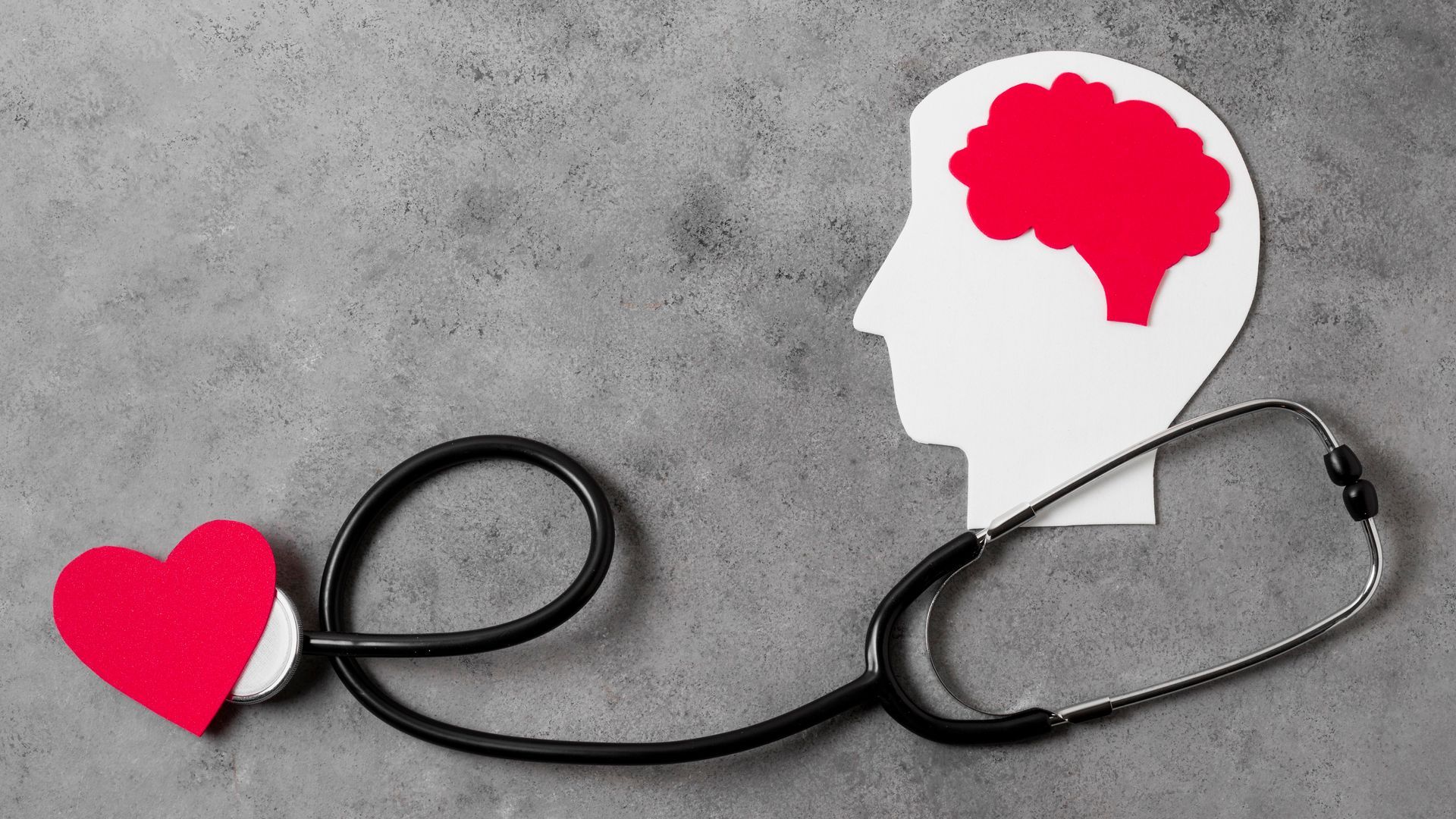Healthy Minds, Healthy Hearts: The Connection Between Mental Health and Heart Health

By Thrive Reno’s Director of Nursing Liz Lass, RN, CEDRN, CPT
Anxiety and depression don’t only affect your thoughts and feelings, but your body as well — specifically your heart. Risk factors for cardiovascular diseases , anxiety and depression can compromise the heart’s functioning.
STRESS, ANXIETY, AND HEART HEALTH
Humans have evolved to respond to threatening situations by activating the sympathetic nervous system and entering flight-or-fight mode . While this mode serves as an efficient way to protect you when presented with danger, it’s also the culprit for chronic stress and anxiety .
When up against a perilous situation, the brain signals the adrenal glands to release the hormones adrenaline and cortisol. Unfortunately, the brain isn’t adept at differentiating between different kinds of threats, nor their intensity. As such, it has difficulty deciphering between physical threats, such as an angry bear charging you, and perceived threats, such as failing an upcoming final exam or missing an important deadline.
These flight-or-fight hormones increase heart rate, elevate blood pressure, raise blood sugar levels, and tap into stored energy for fuel. So, if a bear is truly charging you, the surge of adrenaline and cortisol allows you to run as fast as you can to escape. Unfortunately, the body will respond similarly to perceived threats even though an urgent getaway isn’t required.
Although critical during acute situations, over time these hormones can wear on the body. When experiencing chronic stress or anxiety over whether you will pass a final exam or meet a deadline, your body remains in fight-or-flight mode. The resulting sustained elevated heart rate, blood pressure, and blood sugar can lead to cardiovascular diseases .
In addition to damaging the heart, the continuous release of stress hormones can affect other bodily processes, perceived as nonessential. For example, to maintain survival, cortisol can decrease the immune system’s functioning, slow digestion, and suppress the reproductive system. As a result, individuals struggling with chronic stress or anxiety may face infection as well as gastrointestinal and fertility issues.
DEPRESSION AND HEART HEALTH
The symptoms of depression , such as low mood, social isolation, and changes in appetite, can shift a person’s once healthy habits to destructive behaviors. Individuals suffering from depression typically struggle to practice self-care, nourish themselves adequately, connect with their loved ones, sleep well, and engage in movement. These consequential behaviors may contribute to a sedentary lifestyle which can harm the heart.
In addition to disrupting a person’s lifestyle, depression can be detrimental to the body’s functioning. Depression can cause inflammation, which can clog arteries, increase the production of cortisol and adrenaline, and allow blood clots to form.
MINDFULNESS AND HEART HEALTH
Known to evoke feelings of calm, well-being, and purpose, mindful movement can help mitigate both anxiety and depression while also promoting heart health. Cardiovascular-focused mindful movement and aerobic activities such as running, biking, hiking, and dancing help strengthen the heart muscle and improve its ability to obtain oxygen from the bloodstream. Additionally, being active increases good cholesterol, helps lower blood pressure, and improves circulation for enhanced cardiovascular health. Physical activity also promotes better sleep, a positive outlook, and self-confidence and provides a natural energy boost among many other benefits .
Additionally, mindfulness practices such as yoga, meditation, breathwork, and massages can stimulate the parasympathetic nervous system and shift the fight-or-flight response to a rest-and-digest response , which allows the mind and body to relax. In rest-and-digest mode, the heart doesn’t have to endure the negative consequences of constant stress hormones.
INTEGRATED HEALING AT THRIVE
Thrive’s experts know that healing the whole person requires sophisticated treatment that honors the intricate relationship between the mind, emotions, and body. Our team includes mental, behavioral, and physical health specialists who collaborate to provide client-centric care. Find out more about our integrated therapeutic services by reaching out to us.
About the Author
Thrive Reno’s Director of Nursing Liz Lass, RN, CEDRN, CPT
Liz Lass, RN, CEDRN, CPT, is Thrive’s Director of Nursing and is truly passionate about working with the eating disorder community. Liz earned her Bachelor of Science in Nursing from the University of Nevada, Reno, and Bachelor’s in Science in Exercise and Sport Science from Western Washington University in Bellingham, WA. Liz is a CEDRN (Certified Eating Disorder Registered Nurse) and has 9 years of experience working with the eating disorder population. Liz is also a certified personal trainer and is passionate about integrating her background of exercise science into her practice through mindful movement and helping clients heal their relationship with exercise. Her dynamic role at Thrive Wellness includes performing nursing assessments, providing meal support, leading groups, consultations, and assisting prescribers at Thrive Wellness with coordination of care between agencies, pharmacies, and laboratories. In her free time, Liz enjoys all that the Reno-Tahoe area has to offer, including skiing, hiking, biking, camping, wake-surfing, paddle boarding, and listening to live music. She grew up in Sun Valley, ID, and lives with her husband, two sons, and blue heeler in Verdi, NV.
The post Healthy Minds, Healthy Hearts: The Connection Between Mental Health and Heart Health first appeared on Thrive Wellness.








